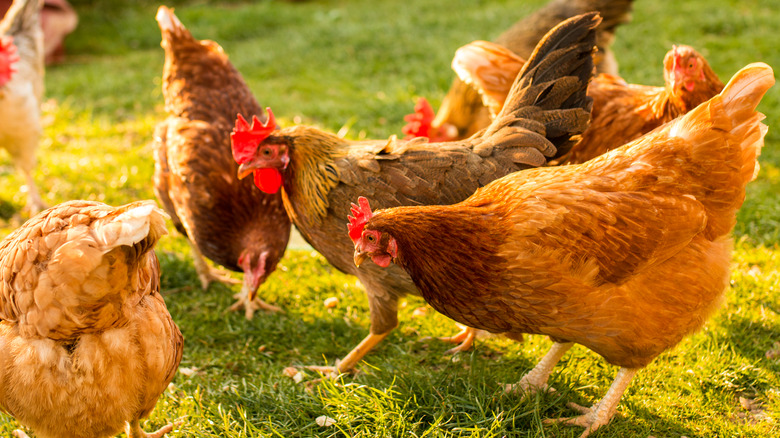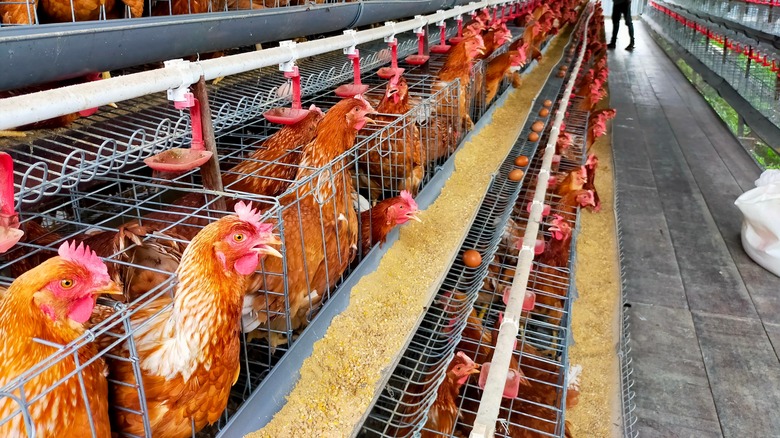What, Exactly, Does The Chicken Label 'Pasture-Raised' Mean?
While shopping for chicken in the grocery store, perhaps you've seen the words "pasture-raised" or "pastured" printed on the package, and maybe you've even wondered what that means or why it's important. As consumers are slowly gaining access to more information about how the bacon is made — that is to say, how our meat products are produced — some folks have become more conscious about buying ethically-raised meat. In that regard, as well as in terms of nutritional value, chickens that have been pasture-raised are considered to be among the highest quality.
One of the common myths about chicken is that "free-range" chickens are actually pastured, but this merely means they have some kind of access to the outdoors. When chickens are pasture-raised, that means they spend their time doing what chickens do best: foraging! As natural foragers, pasture-raised chickens have access to open land, and with that, space to roam and root around for the seeds and insects that contribute to their healthful existence.
Unfortunately, because the "pasture-raised" label isn't regulated by the USDA, the amount of land farmers give their chickens to graze can vary greatly. In order to get a "Certified Humane" label, however, Humane Farm Animal Care set a standard of 108 square feet per chicken in order for pastured chicken to be considered ethical.
Pasture-raising chicken is far more ethical than factory farming
The secret side of chicken farming can get a bit dark. Factory farms often raise chickens in barns that are packed to the brim with birds. They tend to live out their lives without sunlight, outdoor access, space to move around, or food beyond the grain they're allotted. In some factory farms, several birds are kept in one small battery cage — unable to move freely — for the entirety of their lives (which is one reason why you should be eating cage-free eggs). Not only is this kind of treatment indisputably inhumane to the birds, but it also impacts the meat's taste and nutritional value.
When chickens are given access to their natural environment, they become healthier birds and, by extension, more nutritious meat. Pasture-raised chicken tends to be higher in iron and omega-3 fatty acids than factory farm chickens. This meat also contains significantly more of essential vitamins A, E, and D than factory-raised birds and — thanks to their natural diet — 21% less saturated fat (via Pasturebird).
Even the eggs from pasture-raised birds are better to consume. Keeping pasture-raised chickens is good for the environment, too! As a type of regenerative farming that gives back to the land, pasturing animals also allows their manure (or, as farmers call it, "black gold") to go directly back to the earth, returning its micronutrients to the soil.

